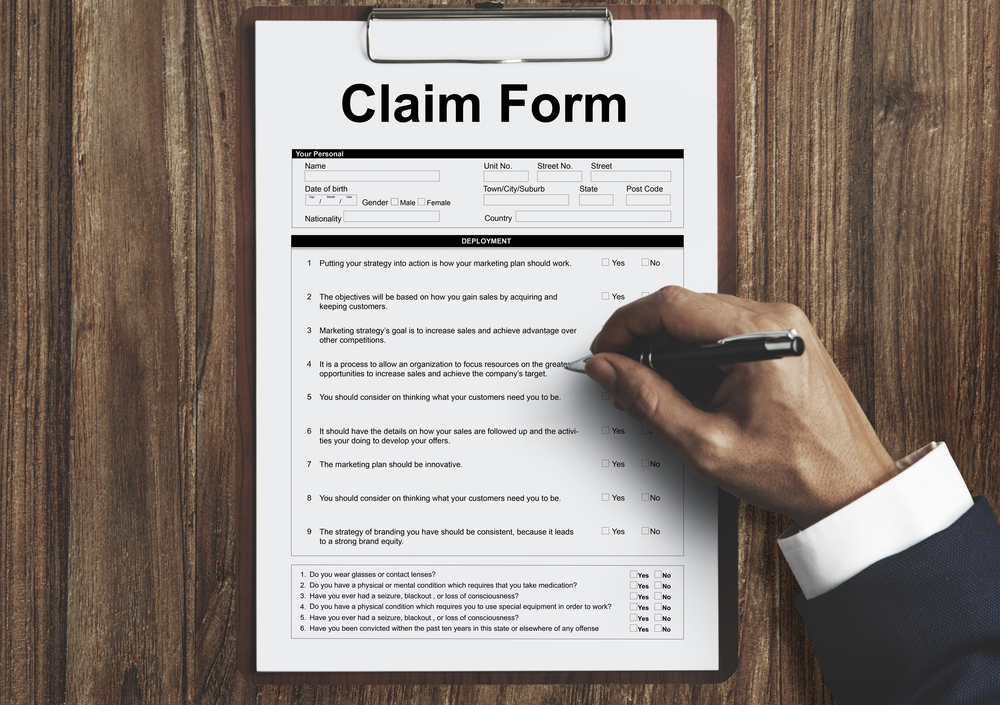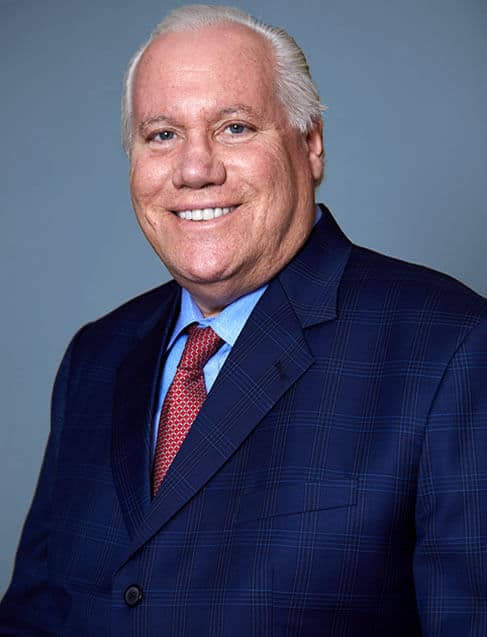That phone call from an insurance adjuster is coming. They will sound friendly and may promise to “make things right” after your accident. You must recognize this conversation for what it is: the start of a negotiation where the adjuster's goal is to pay you as little as possible.
The way insurance companies negotiate settlements follows a specific playbook designed to protect their bottom line, not your well-being. Knowing their strategy is how you begin to protect your right to fair compensation. Contact our Queens personal injury lawyers for free consultation today!
Schedule a Free Case Evaluation
The Adjuster's True Role: Defending the Company's Interests
An insurance adjuster may sound like they are on your side, but their job performance is measured by one thing: how much money they save their company. They are not customer service agents but claims managers trained to minimize payouts.
Every action they take is part of a strategy to close your claim quickly and for the lowest possible amount. The adjuster's primary goals usually include:
- Getting a recorded statement: They want to get you on record as soon as possible, often before you know the full extent of your injuries. They will look for any inconsistencies or statements they can use to question your claim later.
- Controlling the narrative: They aim to define your injuries and losses on their terms. This means downplaying your pain, questioning your need for medical treatment, and ignoring long-term consequences.
- Pressuring a quick settlement: They know that injured people are often under financial strain. They use this to their advantage by offering a fast, small payment in exchange for you signing away your right to any future compensation.
- Finding reasons for denial: From the first call, the adjuster is searching for information that would allow them to partially or completely deny your claim, such as suggesting you were at fault or that your injuries were pre-existing.
Common Insurance Company Negotiation Tactics
Insurance companies and their adjusters rely on a playbook of proven tactics to reduce the value of your claim. Being able to spot these strategies is essential.
Tactic 1: The Fast and Low Settlement Offer
One of the most common tactics is to contact you within days of the accident with a settlement offer. It may seem like a relief to get a check quickly, but this initial offer is almost always a lowball amount that barely covers your emergency room bill.
Accepting this offer is a trap because:

- You sign away your rights. Cashing that check requires you to sign a release form, which legally prevents you from ever seeking more money for this accident, even if your injuries turn out to be much worse.
- You do not know the full cost. It takes weeks or months to know the true extent of an injury. You may need surgery, ongoing physical therapy, or be out of work for an extended period. The first offer never accounts for these future costs.
- It ignores your pain and suffering. Early offers only consider the most obvious bills you have right now. They do not include any compensation for the physical pain, emotional distress, and disruption to your life.
Tactic 2: Demanding a Recorded Statement
The adjuster will tell you that they need a recorded statement to process your claim. They make it sound like a routine, mandatory step. It is not. You are not required to provide a recorded statement, and doing so almost never helps you.
The purpose of a recorded statement is to gather ammunition to use against you.
- They ask leading questions. An adjuster might ask, "So you were only going a little over the speed limit?" or "You didn't see the 'wet floor' sign?" These questions are designed to get you to admit partial fault.
- They use your words out of context. If they ask, "How are you today?" and you politely respond, "I'm fine," they will note that you said you were "fine" and use it to argue your injuries are not severe.
- They lock in your story. If you later remember a detail about the accident or your doctor discovers a new injury, the adjuster can point to your initial statement and claim you are changing your story, damaging your credibility.
Tactic 3: The Strategy of Delay and Stall
If you do not accept the lowball offer, the next tactic is often to delay everything. The adjuster hopes that by dragging out the process, you will become frustrated and financially desperate enough to accept a fraction of what your claim is worth.
Common delay tactics you might encounter:
- Unreturned Calls and Emails: The adjuster who was so eager to speak with you at first suddenly becomes impossible to reach.
- Constant Reassignments: Your claim gets passed from one adjuster to another, forcing you to explain your story over and over again, with no one taking responsibility.
- Endless Paperwork Requests: They might repeatedly claim they never received your medical records or that they need one more form, all while your bills are piling up.
- "Waiting for Supervisor Approval": They may agree to a higher amount on the phone but then claim it needs to be approved by a manager, a process that can take weeks or months with no resolution.
Tactic 4: Questioning Your Injuries and Medical Treatment
A core part of the insurance negotiation strategy is to dispute the very harm you have suffered. They will try to create a narrative that your injuries are not as bad as you say they are.
How they challenge your medical claims:
- Arguing a Pre-Existing Condition: They will demand access to all of your past medical records, hoping to find a previous injury they can blame for your current pain.
- Downplaying Your Doctor's Orders: The adjuster might question the treatment your own doctor has recommended, suggesting that you do not really need that surgery or physical therapy.
- Using an "Independent" Medical Examination (IME): They may require you to be examined by a doctor they hire and pay for. These doctors often write reports that favor the insurance company's position and minimize your injuries.
- Monitoring Your Social Media: They will scour your public social media profiles for photos or posts they can use to argue you are not really hurt. A picture of you smiling at a family event could be used as "proof" that you are not suffering.
Tactic 5: Shifting the Blame to You
In states like New York, if you are found partially at fault for an accident, your final compensation can be reduced by your percentage of fault. Insurance companies know this and will do everything they can to shift the blame onto you.
This tactic is common in many types of cases:

- Car and Truck Accidents: They might claim you were the one who made a sudden turn, were distracted by your phone, or failed to yield, even when their driver was clearly negligent.
- Slip and Fall Accidents: A property owner’s insurer will argue you were not paying attention to where you were walking or that the hazard, like a puddle of water, should have been "open and obvious."
- Unsafe Work Site Incidents: In a construction accident, a contractor's insurer may try to blame the injured worker, suggesting they were not using equipment properly, even if they were never given the right safety gear for a ladder or scaffold.
How a Lawyer Forces a Fair Negotiation
Hiring a personal injury lawyer completely changes the dynamic. The insurance company can no longer use its usual playbook against you. An attorney steps in and forces the negotiation onto a level playing field based on facts and law, not tactics and pressure.
An attorney proves the full value of your claim
A lawyer does not just add up your current bills. They build a comprehensive damages case that accounts for every single loss you have suffered and will suffer in the future.
- They gather all medical evidence to create a complete picture of your injuries.
- They work with your doctors to get a clear prognosis about your future medical needs.
- They may hire financial professionals to calculate your total lost wages and diminished earning capacity for the rest of your career.
- They place a fair monetary value on your pain, suffering, and the emotional toll the accident has taken on your life.
An attorney takes over all communication
Once you hire a lawyer, the insurance adjuster is legally required to stop contacting you. All communication must go through your attorney’s office.
This protection provides two major benefits:
- You are shielded from pressure. You no longer have to deal with the adjuster's calls, questions, and lowball offers. You can focus entirely on your medical treatment and recovery.
- You cannot be tricked. Your lawyer handles every request and statement, ensuring you do not say anything that could be misinterpreted or used to weaken your case.
An attorney gathers the evidence to defeat their arguments
An experienced lawyer anticipates the adjuster’s tactics and proactively builds a case to counter them. They have the resources to conduct a proper investigation that proves what really happened.
What a legal investigation can uncover:

- In a truck accident, a lawyer can preserve the truck’s black box data and driver logs to prove fatigue or speeding.
- For an unsafe work site, they can get witness statements and OSHA reports that show a contractor ignored safety rules about ladders or scaffolds.
- In a medical malpractice case, they will hire respected medical professionals to review the records and provide testimony that your doctor’s care fell below the required standard.
- For a slip and fall, they can find security footage or internal maintenance logs that show a property owner knew about a hazard and did nothing to fix it.
Frequently Asked Questions About Insurance Negotiations
Should I sign the medical authorization form the adjuster sent me?
No. You should never sign any document from an insurance company without having a lawyer review it first.
The authorization forms they send are often overly broad, giving them permission to access your entire life’s medical history. They will use this to go on a fishing expedition for any pre-existing condition they can use to deny your claim.
What if the insurance adjuster says their offer is "final"?
This is another common negotiation tactic. A "final" offer is rarely truly final. It is a pressure move designed to make you feel like you have no other choice. An attorney can assess the offer and, if it is unfair, reject it and file a personal injury lawsuit. The threat of a trial is often the only thing that will make an insurance company increase its offer to a fair amount.
Why would the insurance company deny my claim completely?
A claim can be denied for many reasons. The insurer might argue that their policyholder was not at fault, that your injuries were not caused by the accident, or that the policy does not cover this type of incident.
A lawyer analyzes the denial letter, determine if the denial is valid, and fights back by presenting evidence that refutes the company’s position.
Is it too late to hire a lawyer if I have already been talking to the adjuster?
No, it is not too late. While it is best to get a lawyer involved early, you can hire one at any stage of the process.
An attorney steps in, stops the direct communication, corrects any mistakes that may have been made, and takes over the negotiation to get your claim back on the right track.
You Deserve an Advocate, Not an Adversary

At Queller Fisher, we are committed to being that advocate for people who have been harmed. Our attorneys have a long history of forcing insurance companies to pay fair compensation to our clients across New York City, including in Brooklyn and Queens, and throughout Westchester, Nassau, and Suffolk counties. With offices in Manhattan and White Plains, we are ready to stand up for you. You do not have to accept their tactics or their lowball offers.
Call us today at 212-406-1700 for a free, no-obligation consultation. Let us handle the fight with the insurance company so you can focus on healing.